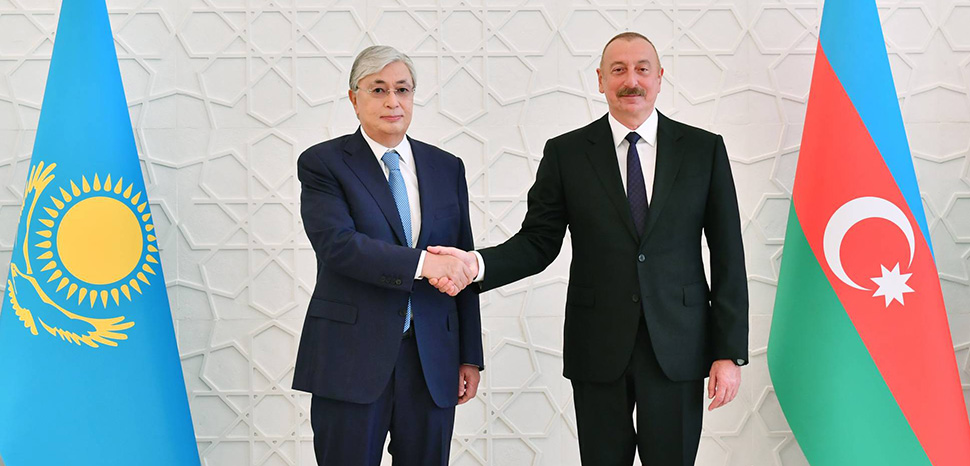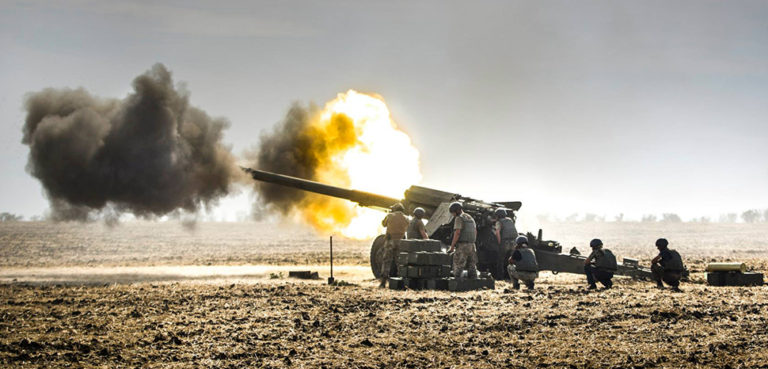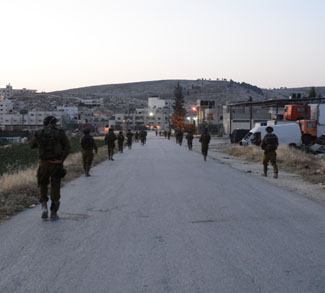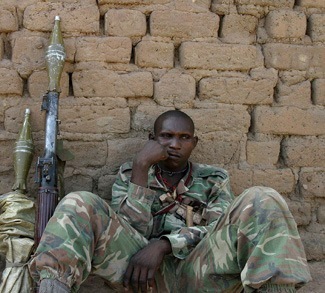First broken in an article from the Astana Times, Azerbaijani and Kazakh leaders gathered in the formers’ country for high-level talks on June 22, 2023. These talks were aimed at boosting the overall value of trade between the two countries to a targeted goal of $1 billion annually.
It’s hardly a surprise then that these nations are working on developing closer ties. Both Azeris and Kazakhs speak similar Turkic languages, share Turkic ethnic roots, and are members of many common regional groupings like the Organization of Turkic States. Both economies are heavily dependent on hydrocarbon reserves. Politically, both have long sought to chart an independent course from the powers that surround them, predominantly Russia, despite frequently having a pro-Moscow streak in the recent past. Finally, both countries were part of the Soviet Union until its collapse in 1991.
Kazakhstan has been the most economically successful of the two. The UN’s Development Program classifies Kazakhstan as a very highly developed country with a nominal income per capita of about $11,000 annually. More of its economy is devoted to the service sector than Azerbaijan. And according to the Fund for Peace’s Fragile States index, Kazakhstan fares significantly better. Its significantly larger population and economy than Azerbaijan also makes it more influential in this regard.
Shifting geopolitical realities have accelerated cooperation between the two countries. According to the Astana Times article, bilateral trade between the two increased by about 40%, up to $460 million USD, in 2022. Following the imposition of Western sanctions and pariah status on a significantly less reliable partner in Russia, Kazakhstan was caught in a difficult situation. Physically sandwiched between Russia, China, and the less affluent states to its south, the country still nevertheless has been courting Western capital and political goodwill with the goal of balancing out the major regional players around it.
Azerbaijan is Kazakhstan’s next best geographic choice for accessing lucrative markets in the EU. Although Azerbaijan benefited from Russia’s refusal to help Armenia in its most recent offensive, the West considered it to be sufficiently independent from Moscow’s interests to be invited into the first European Political Community summit in October 2022. This is likely due to Azerbaijan’s historical balancing of both the West and Russia as well as its geography with Turkey, a NATO member, and Iran, which hosts a large Azeri population along south of the border.
Both countries suffer from vulnerabilities in the face of Russian military power, which in turn shapes their geopolitical objectives concerning their far larger neighbor. The northern part of Kazakhstan, specifically the land along the Irtysh and Irtysh rivers which flow into Western Siberia, encompasses the same flatland steppes that comprise most of the country’s geography. Kazakhstan’s capital lies in this region and from there to its most populous city, Almaty, is a vast expanse of steppe that would be difficult to defend in the event of a conflict.
Azerbaijan’s security vulnerabilities meanwhile can be contained to the coastal plain in the country’s narrow, northeastern flatland. On the one hand, it creates a bottleneck for Azerbaijan; most of its border with Russia is comprised of the high northern Caucasus mountains. On the other, if Russian forces were to break through this bottleneck it would be a short journey to Azerbaijan’s capital Baku and the country’s populous core region in the east of the country.
The growth in bilateral trade signals a response to the war in Ukraine and Russia’s historic diplomatic low point with the West. To the extent that these two ex-Soviet states are going through such lengths, even if not particularly onerous or difficult, to try to bypass Russia despite one of them being formally in the Eurasian Economic Union is probably good news for the West. This news however, is probably marginal in the grand scheme of US strategy. Despite the immediate crisis in Ukraine, Washington considers Beijing to be more of a strategic threat than Russia. In the case that Western policy interest toward Russia escalates beyond what it hitherto has been, Azerbaijan and Kazakhstan would likely be among the first countries that Washington would turn to that aren’t already in its camp.
The views expressed in this article belong to the authors alone and do not necessarily reflect those of Geopoliticalmonitor.com.




